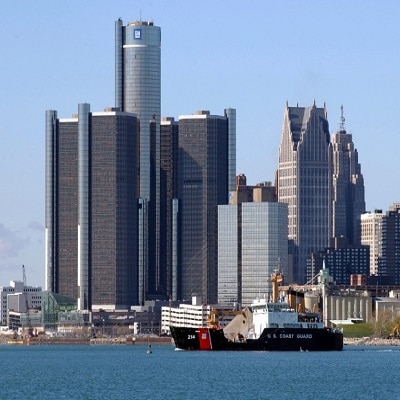It may not start until March 1, 2016, but these are the facts you should know about the new medical marijuana dispensary ordinance passed by Detroit’s City Council last week.
Applications will be taken from existing and prospective CCs begins on March 1, 2016. Existing businesses have a 30 day window in which to apply. They have to show “significant progress” within 60 days and must have completed the process within 60 days after receiving their building permit. Several other benchmarks apply, and those applicants who are late with payments may find themselves rejected, according to the language of the ordinance.
CCs can be established in the B2, B4, M1, M2, M3 and M4 zoning districts. Prohibited areas include Traditional Main Street Overlay or Gateway Radial Thoroughfare Areas. CCs must provide one offstreet parking spot for every 200 square feet of the Center. They cannot be less than 1,000 feet from another CC, from a park recognized by the Recreation Department, from a religious institution which has received a tax exemption from the city, or from a businesses identified as a controlled use (topless clubs and liquor stores).
What about religious institutions that are shuttered and are no longer holding services? Or liquor licenses assigned to addresses where there are no business activities? Some of them still count, per the city’s Corporate Counsel in a Commission meeting. Imposing a 1,000 radial feet buffer zone from a defunct bar or from fallen-down churches? Only in Detroit.
If, however, the parcel in question is less than 1,000 feet from the city-defined Drug Free Zones, that option is not available. No variance is allowed for parcels falling into these buffer zones, and there are a lot of them.
The federal Drug Free School Zone is more limited than the city’s version. The federal standard applies just to libraries and K-12 schools, essentially. The Detroit version cranks it up to include arcades, child care centers, youth activity centers, public housing, outdoor recreation areas and all educational institutions- including their properties, as was explained at a City Public Commission meeting in November.
In the industrial districts, CCs can be less than 1,000 feet from each other to allow for ‘clustering’ of business. The buffer zone from residential areas is waived in these industrial districts, except for the public housing provision of the Drug Free Zone.
I did receive a communication from a city official which carries this disclaimer:
“Please be advised that, as articulated by the Corporation Counsel and the Chief of Police during the Special Session, all existing medical marijuana businesses and any that begin operations in the future prior to obtaining a license and all requisite approvals from the city are unlawful. The City of Detroit reserves its right to enforce the law and will respond to any complaints that are received.”
Anyone that cultivates marijuana in a residence in the city of Detroit will be required to register as a home-based occupation, per the new ordinance. Licensing section 24-13-4 states: “Except for home occupations… no person shall dispense, cultivate or provide medical marijuana under the Act except at a medical marihuana caregiver center.”
Also, no butane hash oil, concentrates or edibles in the city, according to this portion of the definition ofmedical marihuana:
“This shall not include butane hash oil or marihuana in any form inconsistent with the definition of usable marijuana under state law.”
A conflict exists within the Detroit ordinance and proposed legislation facing the Michigan Senate. In the language of proposed medical marijuana dispensary bill HB 4209, as passed by the House of Representatives, state-registered medical marijuana caregivers are prohibited from either being owners or employees of any medical marijuana distribution or processing center. Detroit law mandates that the owner, operator and all employees of the must CC be card holding, registered caregivers (Sec. 24-13-6 (a8) ). In a new version of HB 4209 proposed by Senator Rick Jones in November, caregivers can be workers BUT NOT OWNERS of these businesses.

